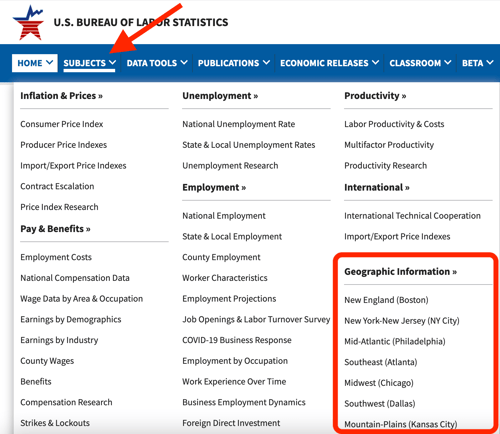Product marketing is a uniquely diverse function, and as such, product marketers tend to come from varying backgrounds and possess differing strengths. Some product marketers are master storytellers. Others are highly technical product experts. Others still seem like revenue whisperers in their ability to enable sales to succeed.
Even those three categories do not adequately encapsulate the full breadth of the role and the skills required to be a “great” product marketer. What makes a great product marketer?
Great product marketers are a company’s subject matter experts.
That may sound broad, but breadth is the hallmark of the product marketing role. Great product marketers serve as the reliable masters of three important topics: your product, your market, and your customers. To fulfill the duties of a role that is simultaneously strategic and tactical, both technical and commercial, product marketers must establish, maintain, and actively leverage subject matter expertise in all three of those areas.
Product Prowess
Product marketers need not attain the level of product knowledge that their counterparts in product management possess. Instead, strive to achieve and maintain a strong grip on how your product differs from incumbent/competitive solutions. Also, how and why customers use it, and the direction in which it is being developed.
One of the best ways to develop an empathetic understanding of your product is to, if possible, use it yourself as often as you can. Take that exercise a step further and try using your competitors’ products to whatever extent is possible to you. This will help you develop a much less academic, more practical understanding of how your product differs.
To maintain a high level of product knowledge, make sure to schedule regular syncs with your product management/development team. A strong understanding of the past, current, and future state of your product will help you craft better messaging.
Product knowledge alone does not make PMMs uniquely valuable. Contextualizing that deep product knowledge by combining it with equally deep knowledge of how and why customers use it is expertise uniquely wielded by product marketers.
Customer Centricity
Product knowledge in a vacuum can be dangerous. Avoid making assumptions about the value of your product and its use cases. Instead, tap into your customer base for that information.
Sit in on customer calls as regularly as possible. Better yet, work with your account managers to arrange interviews with customers across a variety of verticals, personas, use cases, etc. Try to understand their goals, challenges, and how your product is helping them advance higher-level goals. Product use cases, purchase motivators, and terminology customers employ may differ from any assumptions you’ve made.
To maintain an ongoing understanding of your customers and accrue a greater number of data points, try to add your own questions into regularly scheduled customer surveys. Most organizations survey customers with the goal of learning how to better develop product capabilities and service offerings. By adding a handful of questions that focus on business-level goals and challenges, product marketers can establish and maintain an understanding of buyer motivations.
The last piece of the puzzle is possessing a firm grip of the market forces that influence your product and customers every day.
Market Mastery
Product marketers need to possess unrivaled knowledge of two market forces: competitors and wider macroeconomic trends. Whether we like it or not, these factors influence buying decisions, product roadmap, and more.
Competitive Forces
Understanding where your competitors fit into your market will help you take a customer-centric, competitor-conscious approach to everything you do. Start by identifying your competitors and assigning them tiers (direct competitors, indirect competitors, aspirational, etc).
Perform a competitive analysis of each. Go beyond a feature comparison and try to understand their key messaging/positioning points, why their customers elected to buy from them, and the direction in which they’re developing their product.
Once you’ve established your competitive landscape, be sure to monitor competitors for changes to messaging, new product features, and anything else capable of blindsiding your sales, product development, and executive teams.
Macroeconomic Forces
Understanding the broader macroeconomic forces at play in your market is critical. Industry growth statistics, changes in buyer behavior, new tactics/strategies, changes in government policy - the specific forces will differ by industry. Try to focus on figures that can help sales prove value, trends that will impact customer purchase decisions, and anything that might impact product roadmap priorities.
Industry-specific publications, outlook reports from firms like Deloitte or McKinsey, or analyst inquiries with firms like Gartner and Forrester are some of the best sources of this information.
With a firm grip on these three key pillars of product marketing and an understanding of the context each provides the other, product marketers can provide unique insights and deliverables.
Leveraging Subject Matter Expertise
When faced with an endless array of responsibilities, product marketers should focus on those that best leverage their unique balance of product/customer/market expertise. These are three examples of contributions product marketers are uniquely positioned to make when they achieve subject matter expertise.
Sales Enablement
Competitor battlecards are a prime example of enablement collateral that requires an equally strong understanding of your product, your customers, and your market. Effective battlecards include product differentiators, competitor kill points, customer proof points, and more. The best are constantly updated with new information to avoid decreasing adoption. Battlecards produced by sales, product, or other teams often lack this important balance of information.
When key clients or prospective buyers have complicated questions, product marketers are often the best people to provide answers. Product marketers are uniquely able to answer product-related questions while also factoring in related market forces that justify decisions and customer proof points that add purchase confidence. Bringing in a product marketing subject matter expert can often provide buyers with the confidence needed to move forward when a deal stagnates.
Executive Guidance
Product marketers should be as strategic as they are tactical. According to the Product Marketing Alliance’s report, 67% of C-suite executives invite product marketing to leadership meetings. By serving as the subject matter expert for all things product, customer, and market-related, product marketers can ensure that they will always have a seat at the executive table.
Product marketing should be a hub of knowledge in any organization. By establishing, maintaining, and proactively exercising your subject matter expertise, you can quickly find yourself uniquely positioned to make highly valuable contributions across your organization.

Related Blog Posts
Popular Posts
-
 How to Create a Competitive Matrix (Step-by-Step Guide With Examples + Free Templates)
How to Create a Competitive Matrix (Step-by-Step Guide With Examples + Free Templates)
-
 Sales Battlecards 101: How to Help Your Sellers Leave the Competition In the Dust
Sales Battlecards 101: How to Help Your Sellers Leave the Competition In the Dust
-
 The 8 Free Market Research Tools and Resources You Need to Know
The 8 Free Market Research Tools and Resources You Need to Know
-
 6 Competitive Advantage Examples From the Real World
6 Competitive Advantage Examples From the Real World
-
 How to Measure Product Launch Success: 12 KPIs You Should Be Tracking
How to Measure Product Launch Success: 12 KPIs You Should Be Tracking





